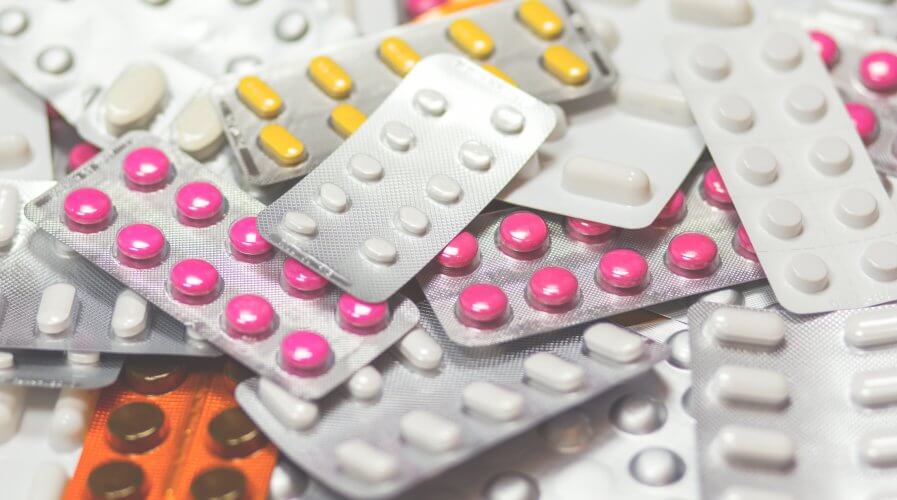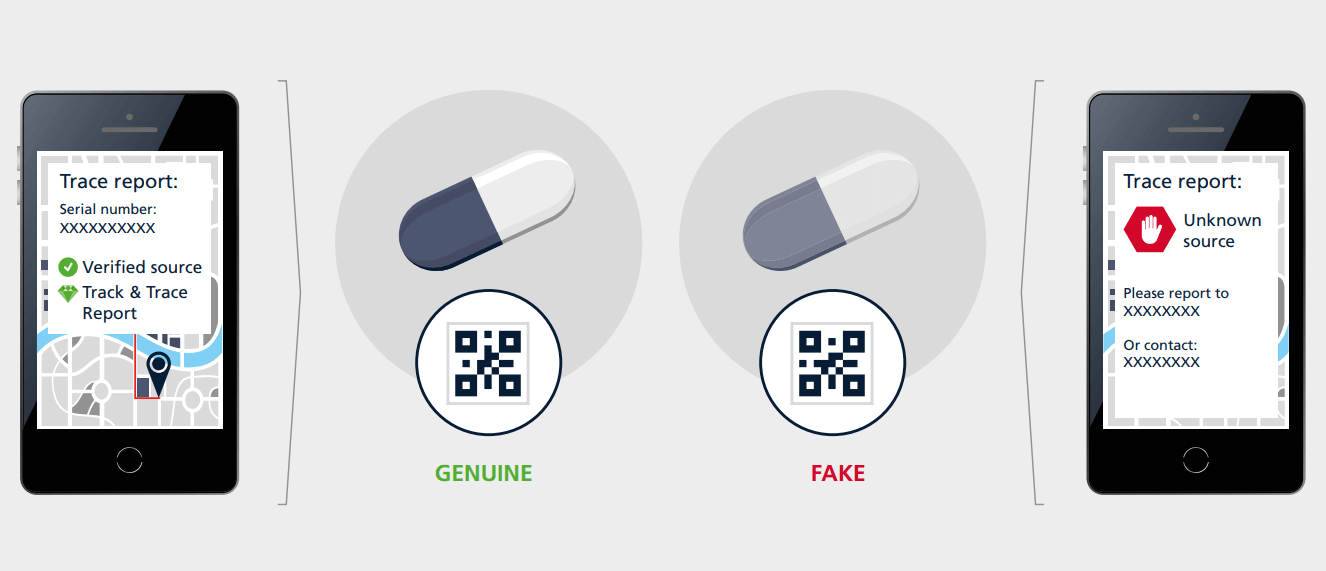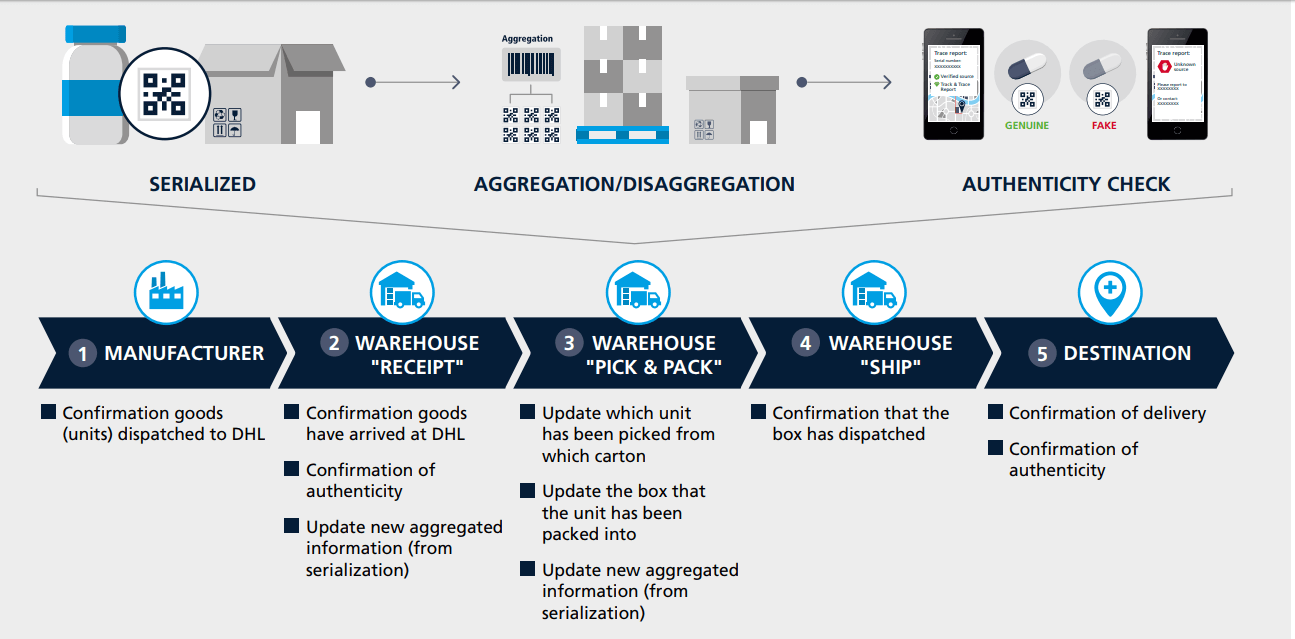
Making counterfeit medicines a thing of the past using Blockchain | Source: Pexels
Can blockchain kill the counterfeit pill?
BLOCKCHAIN is a technology that’s becoming synonymous with transparency, and as businesses invest in adopting it, new benefits emerge.
According to a study by DHL and Accenture, blockchain technology can now be used to combat counterfeit drugs and false medications across the globe.
Counterfeit pharmaceuticals are a EUR188 billion (US$200 billion) annual business, according to PwC. Even in the most secure markets in the world, it’s estimated that at least 1 percent of all drugs in circulation are counterfeit.
The impact? A death sentence for up to a million people every year, reported the Atlantic.
To answer this challenge, DHL and Accenture are driving a blockchain-based serialization project providing sophisticated track-and-trace capabilities to the pharmaceutical industry.

Blockchain can be used to ensure product integrity | Source: DHL
Pharmaceutical serialization is the process of assigning a unique identity (e.g., a serial number) to each sealable unit, which is then linked to critical information about the product’s origin, batch number, and expiration date, explains Accenture.
Serialization helps track a unit at virtually any moment and trace it to its location at any stage of its lifecycle.
One of the biggest challenges with serialization is maintaining traceability and transparency especially when these units are repackaged as cases and pallets for shipping, and then disaggregated to unit level for consumption.
The DHL /Accenture proof-of-concept overcame this by effectively using blockchain technology in product verification.
Their aim was to help ensure that pharmaceutical products have come from legitimate manufacturers, are not counterfeit, and have been correctly handled throughout their journey from origin to the end consumer.
The project is especially valuable because it allows end consumers to verify the legitimacy of the drugs they purchase over the counter, in any part of the world.
In most instances, the ability to verify not only helps prevent counterfeiting but saves lives – from hundreds of thousands – to millions in some cases.
To achieve this, a blockchain-based track-and-trace serialization prototype comprising of a global network of nodes across six geographies was established.
The system comprehensively documented each step that a pharmaceutical product takes on its way to the store shelf and eventually to the consumer.

A simplified example of how a blockchain-based track-and-trace system can be used to monitor pharmaceutical goods from manufacturer to end user | Source: Accenture/DHL
The prototype was a lab performance simulation that demonstrated how blockchain technology could handle volumes of more than 7 billion unique pharmaceutical serial numbers and over 1,500 transactions per second.
The project illustrated how blockchain can be used to capture all logistics activities relating to an item of medication – from production to purchase – and ensure this information is made secure, transparent, and immediately available, said Accenture and DHL’s report.
“Our proof of concept demonstrated the opportunities blockchain presents in the fight against counterfeit pharmaceutical goods. Together with our partners we are actively refining the solution as well as working with key industry stakeholders to operationalize the concept” states Keith Turner, CIO Chief Development Office, DHL Supply Chain.
And although this is only a proof of concept, it’s something might be implemented soon.
Similar applications of the technology, such as in the consumer goods and the retail industry, are also being explored – which makes a stronger case for adoption.
In time, you could verify the authenticity of your over the counter medication right from your mobile phone.
READ MORE
- 3 Steps to Successfully Automate Copilot for Microsoft 365 Implementation
- Trustworthy AI – the Promise of Enterprise-Friendly Generative Machine Learning with Dell and NVIDIA
- Strategies for Democratizing GenAI
- The criticality of endpoint management in cybersecurity and operations
- Ethical AI: The renewed importance of safeguarding data and customer privacy in Generative AI applications






